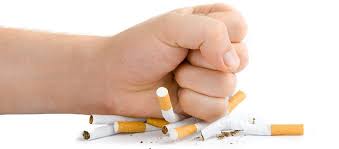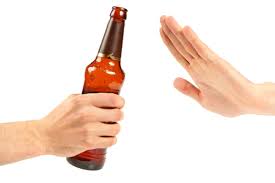Cholesterol is a fatty substance with great benefits for the human body. It aids in the balance of hormones and the production of vitamin D and bail acids. However, at very high levels, cholesterol is dangerous and can lead to several health problems. For adults, cholesterol levels need to be maintained below 240 mg/dL. High cholesterol levels will not necessarily show obvious symptoms, but a blood test can tell whether you are taking in healthy levels of the substance. If you do have excessively high amounts of cholesterol in your blood, it will be necessary to regulate your diet and lifestyle to avoid the complications of high cholesterol.
What Are the Health Risks of High Cholesterol?
1. Coronary Heart Disease
High cholesterol levels are usually associated with coronary heart disease. Excess cholesterol builds up on the walls of the arteries, causing the development of plaque. The result of this is that the arteries grow narrower and end up delivering less blood to the heart. This can cause angina or heart attack.
2. Stroke
High cholesterol increases the risk of getting a stroke. A stroke occurs when there is a complete blockage of an artery that feeds the brain. Stroke patients always have a part of their brain receiving no oxygen or blood.
3. Peripheral Vascular Disease
Peripheral vascular disease (PVD) is one of the health risks of high cholesterol. It affects blood vessels that are not directly linked to the heart and brain. Just as in coronary heart disease, PVD develops when the blood vessels outside the heart and brain get clogged with plaque. PVD usually affects the legs and feet.
4. High Blood Pressure
Blood pressure is the strength of pumping blood in your body. High cholesterol levels lead to high blood pressure since cholesterol will cause the narrowing of blood vessels. This means that the heart has to pump blood with greater strength.
5. Aneurysm
Aneurysm occurs when blood vessels get damaged from the hardening of arteries which is called atherosclerosis. Aneurysm can even make the blood vessels burst, leading to instant death.
6. Kidney Failure
Kidney failure occurs when the blood vessels serving the kidneys get narrowed by a buildup of cholesterol on the walls of the vessels. The lower levels of blood supplied to the kidneys will cause them to shrink and scar, at some point resulting in kidney failure.
7. Abdominal Pain
This is also one of the health risks of high cholesterol. In the advanced stage, cholesterol can deposit in liver and spleen. The enlarged liver and spleen can cause pressure on the organs in abdominal cavity, leading to stomach and abdominal pains.
How to Lower Cholesterol Naturally
Considering all the previous health damages, you may want to lower your high cholesterol level. First you can try the natural remedies to see the results.
1. Eat Heart-Healthy Foods
Chol esterol can be lowered by eating foods rich in healthy fats such as lean meat and low-fat dairy products. Trans fats need to be eliminated since they raise the level of bad cholesterol and lower that of good cholesterol. Eat foods rich in omega-3 fatty acids, which can increase the level of HDL and triglycerides. Some good choices are walnuts, almonds, salmon, mackerel and herring. Also, you should increase your intake of soluble fibers and whey protein. Soluble fibers are found in oats, fruits, beans and vegetables.
esterol can be lowered by eating foods rich in healthy fats such as lean meat and low-fat dairy products. Trans fats need to be eliminated since they raise the level of bad cholesterol and lower that of good cholesterol. Eat foods rich in omega-3 fatty acids, which can increase the level of HDL and triglycerides. Some good choices are walnuts, almonds, salmon, mackerel and herring. Also, you should increase your intake of soluble fibers and whey protein. Soluble fibers are found in oats, fruits, beans and vegetables.
2. Increase Physical Activity

Increasing your physical activity can help increase the levels of HDL in the blood. It is recommended that you spend at least 30 minutes every day working out. For many people with high cholesterol levels, this might prove difficult, and may even result in other health issues. It is important to first get your doctor’s permission before starting out on any physical exercises. To make your exercises more consistent, you can start with simple exercises such as taking daily walks. Exercises also help you lose excess weight which is a contributing factor to unhealthy cholesterol levels.
3. Stop Smoking
 Smoking lowers the amounts of healthy cholesterol in your blood. Within one year of quitting, your chance of getting heart disease is half that of a smoker. Within 15 years, it is similar to someone who never smoked.
Smoking lowers the amounts of healthy cholesterol in your blood. Within one year of quitting, your chance of getting heart disease is half that of a smoker. Within 15 years, it is similar to someone who never smoked.
4. Reduce Intake of Alcohol
 It is recommended that if you do drink, you should do so in moderation. Alcohol consumption in moderate amounts has been proven to result in higher levels of good cholesterol. But if you don't drink, you should not start this habit just for the small benefit. Moderate consumption of alcohol means at most two drinks for men and at most one drink for women.
It is recommended that if you do drink, you should do so in moderation. Alcohol consumption in moderate amounts has been proven to result in higher levels of good cholesterol. But if you don't drink, you should not start this habit just for the small benefit. Moderate consumption of alcohol means at most two drinks for men and at most one drink for women.
How to Lower Cholesterol with Medicines
At many times, you may have to take medicines to lower your high cholesterol level.
1. Statins
Statins function by blocking a substance needed by the liver to make cholesterol. They also work to reabsorb cholesterol deposited on the walls of the blood vessels. In this way, statins can lower the level of cholesterol in the blood, and reverse diseases due to the blockage of blood vessels.
2. Bile-Acid-Binding Resins
These medications include colestipol, colesevelam and cholestyramine. Bile-acid-binding resins reduce cholesterol levels by binding to bile acids. This means that the liver has to use up more cholesterol for the production of more bile acids. This results in lower cholesterol levels in the blood.
3. Cholesterol Absorption Inhibitors
Ezetimibe helps reduce blood cholesterol levels by reducing the absorption of dietary cholesterol from consumed food in the small intestines. Ezetimibe can be used together with statins to combat the risks of high cholesterol.
4. Injectable Medicine
Alternatively, people with high cholesterol levels can use injectable medicine to help the liver absorb more of the bad cholesterol. Alirocumab and evolocumab are two drugs that can be injected to reduce cholesterol levels in the blood. The injectable medicines are used among people who are intolerant to the oral medications or who have genetic conditions.
